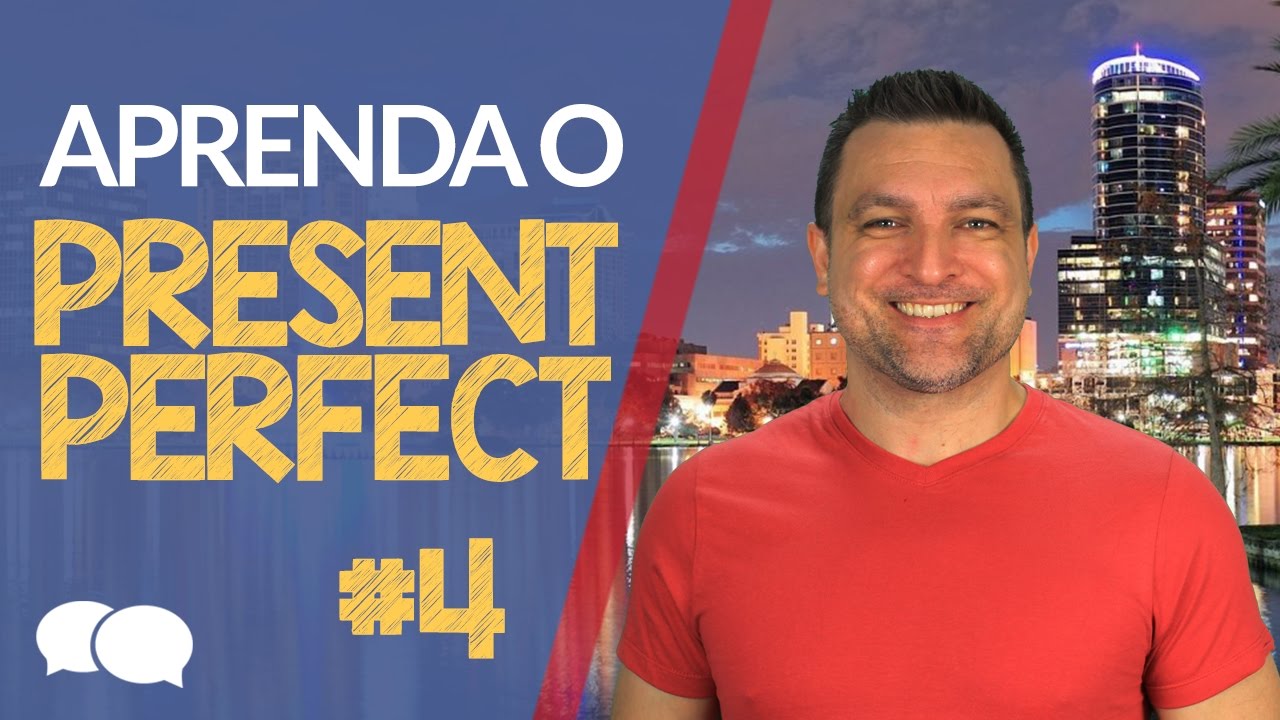Hello friends and welcome back to another post!
Desta vez vamos dar uma olhada em que situações utilizar o presente perfeito em inglês. Veremos em que casos podemos utilizar este tempo verbal seguido de alguns exemplos com explicação em inglês e português. So, let’s get started!
Presente Perfeito Em Inglês
Nós podemos usar o presente perfeito em inglês para falar de uma ação que aconteceu em um momento específico no passado e continua a ter uma forte conexão com o presente. O momento em que a ação ocorreu não é importante.
Podemos também usar o presente perfeito com palavras específicas que expressam tempo, como: yesterday, a year ago, last week, when I was a child, when I lived in Japan, at that moment, that day, one day, etc. (ontem, um ano atrás, semana passada, quando eu era criança, quando eu morava no Japão, naquele momento, aquele dia, um dia, etc.)
O presente perfeito também acompanha expressões não definidas, como: ever, never, once, many times, several times, before, so far, already, yet, etc. (sempre ou nunca, nunca, uma vez, muitas vezes, várioas vezes, antes, até agora, já, já, etc.)
Podemos também utilizar o presente perfeito para contar experiências que tivemos ou que nunca tivemos ou falar de coisas que mudaram com o passar do tempo.
Exemplos Práticos
Vamos ver algumas frases como exemplo prático seguido da explicação de possíveis contextos.
I have lost my wallet. (I don’t have my wallet now, can you help me find it?) — Eu perdi minha carteira. (Eu não tenho minha carteira agora, você pode me ajudar a encontrar?)
Mary has fixed my car. (My car is working now, I’m happy about it!) — Mary consertou meu carro. (Meu carro está funcionando agora, eu estou feliz com isso!)
You haven’t eaten very much. (Don’t you feel well? Don’t you like it?) — Você não tem comido muito. (Você não se sente bem? Você não gosta da comida?)
I haven’t read his book. (I haven’t had time yet. What does he say?) — Eu não li o livro dele. (Eu não tive tempo ainda. Sobre o que é?)
Have you seen my shirt? (I want to wear it now.) — Você viu minha camiseta? (Eu quero usá-la agora.)
Has she had an accident? (Someone said she’s in the hospital.) — Ela sofreu um acidente? (Alguém disse que ela está no hospital.)
I have been to France. (This sentence means that you have had the experience of beeing in France. Maybe you have been there once or several times.) — Eu já estive na França. (Essa frase significa que você teve a experiência de estar na França. Talvez você tenha ido lá uma ou várias vezes.)
I have never been to France. (This sentence means that you have not had the experience of going to France.) — Eu nunca estive na França. (Essa frase significa que você nunca teve a experiência de ir para a França.)
You have grown since the last time I saw you. (You were short before and now you are tall.) — Você cresceu desde a última vez que eu te vi. (Você era baixo antes e agora você é alto.)
The government has become more interested in education. (They had little interest in education before and now they have more interest in it.) — O governo ficou mais interessado em educação. (Eles tinham pouco interesse em educação antes e agora eles tem mais interesse.)
My English has really improved since I moved to Australia. (My English wasn’t good before and after I moved to Australia it improved.) — Meu inglês melhorou desde que eu me mudei para a Austrália. (Meu inglês não era bom antes e depois que eu me mudei para a Austrália ele está melhor.)
Amigos, ficamos por aqui hoje. Agora que você já sabe utilizar o presente perfeito em inglês, confira também como utilizar o presente contínuo. Até a próxima!
TRANSCRIÇÃO DO VÍDEO
(O texto a seguir é uma transcrição completa e sem edições do vídeo.)
Hello students. Today we are going to talk about another way used in english to talk about things that happened in the past. So let’s get started. We use the present perfect to say that an action happened at an unspecified time in the past and continuous to have strong connection to the present. The exact time that it happened is not important. You can not use the present perfect with specific time expressions such as: yesterday, a year ago, last week, when I was a child, when I lived in Japan, at that moment, that day, one day, etc. We can use the present perfect with unspecific expressions such as: ever, never, once, many times, several times, before, so far, already, yet, etc. Let’s take a look at some examples. I have lost my wallet. I don’t have my wallet now, can you help me find it? I have lost my wallet. Mary has fixed my car. My car is working now, I’m happy about it! Mary has fixed my car. You haven’t eaten very much. Don’t you feel well? Don’t you like it? You haven’t eaten very much. I haven’t read his book. I haven’t had time yet. What does he say? I haven’t read his book. Have you seen my shirt? I want to wear it now. Have you seen my shirt? Has she had an accident? Someone said she’s in the hospital. Has she had an accident? We use it to describe an experience you had or an experience you never had. Let’s take a look at some examples with explanations. I have been to France. This sentence means that you have had the experience of beeing in France. Maybe you have been there once or several times. I have been to France three times. You can add the number of times at the end of the sentence. I have never been to France. This sentence means that you have not had the experience of going to France. Another way to use it is to talk about changes that happened over time. Let’s take a look at some examples. You have grown since the last time I saw you. You were short before and now you are tall. You have grown since the last time I saw you. The government has become more interested in education. They had little interest in education before and now they have more interest in it. My English has really improved since I moved to Australia. My English wasn’t good before and after I moved to Australia it improved. My English has really improved since I moved to Australia. Thanks for watching once again, friends. Subscribe to this channel, click on the like button bellow, please leave your comments and add this video to your favorites here on youtube. And I’ll see you next class.


